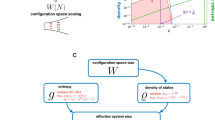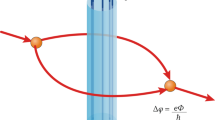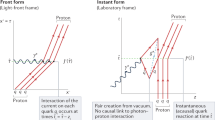Abstract
EVEN if it is one of the essential tasks of the historian of science to find exactly what work was done by certain savants, he should still aim at showing the continuity of effort and research—if not of discoveries—by determining the place of the piece of work in question, its antecedents and consequences, what discussion was centred on it, and the depth and rapidity of its penetration into scientific thought. The necessity for consideration of environment would appear to be less if the savant belongs to a fairly recent period, since the speed with which discoveries become generally known has increased steadily through the centuries with the development of what may be called the internationalisation of science.
This is a preview of subscription content, access via your institution
Access options
Subscribe to this journal
Receive 51 print issues and online access
$199.00 per year
only $3.90 per issue
Buy this article
- Purchase on Springer Link
- Instant access to full article PDF
Prices may be subject to local taxes which are calculated during checkout
Similar content being viewed by others
References
It is interesting to notice that Biot himself spoke in his report with some wonder of electricity being put into motion by simple contact.
Arago having shown this experiment to Ampère, the two then collaborated in new work.
Author information
Authors and Affiliations
Rights and permissions
About this article
Cite this article
BRUNET, P. Faraday and French Physicists*. Nature 128, 346–348 (1931). https://doi.org/10.1038/128346a0
Issue Date:
DOI: https://doi.org/10.1038/128346a0
Comments
By submitting a comment you agree to abide by our Terms and Community Guidelines. If you find something abusive or that does not comply with our terms or guidelines please flag it as inappropriate.



